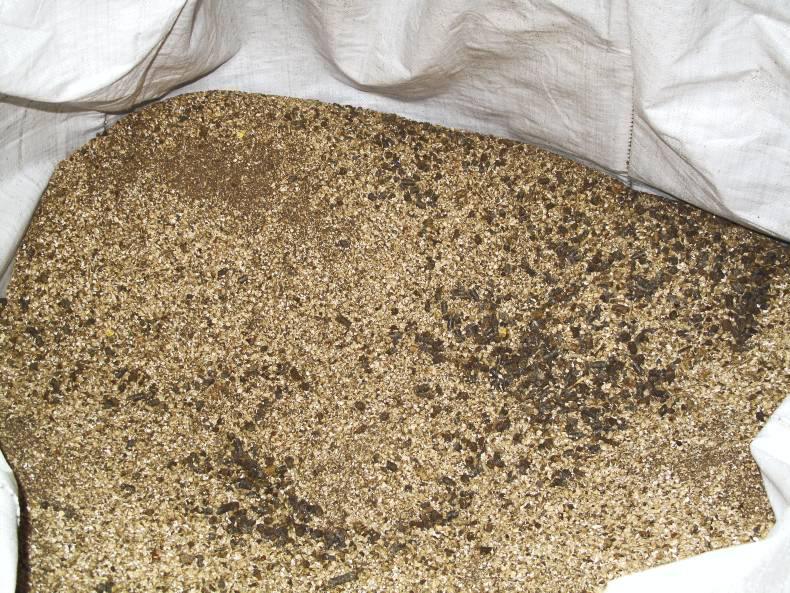Members of the European Parliament (EP) voted this Wednesday against the European Commission's proposal on the imports of genetically modified feed and food. The vote was carried by a huge majority with 577 votes against to 75 for, with 38 abstentions.
A corner stone of the proposal was to let individual member states decide whether to authorise the entry of GM feed on their territory.
A regime of national authorisations was adopted earlier this year for the planting of GM crops, but MEPs have now rejected a similar approach to the trade of feed and food products.
This means new legislation must be drafted to reach agreement between EU institutions on this issue.
Speaking at a press conference after the vote was taken, Giovanni La Via, Chairman of the European Parliament Environment Committee, said the proposal, if carried, would have divided the internal market by re-introducing checks between member states. He also said the proposal was made without an impact assessment, another factor in the EP's decision to reject it.
"We have called on the Commission to come forward with a new legislative proposal on this issue," he said. However, La Via later added that he does not see the Commission tabling anything new on this issue. European Commissioner for Health and Food safety Vytenis Andriukaitis has said the Commission will not withdraw the current legislative proposal, which is now due to be discussed by the EU Council of Ministers.
Legislative differences
Commenting on the difference between the legislation adopted earlier this year which allows MS to decide whether or not to cultivate GM crops on their territory and this rejected proposal, La Via said the difference is fairly clear. "The growing of crops is linked to land and territory and the need to preserve national farming traditions," he said.
Although he said the difference may appear small, La Via added that Europe needs a certain amount of GM protein crops in order for its stock sector to be competitive. "Some 90% of imported protein crops are GM. If we were not using that it would be hard for our stock breeding sector to compete."
This remark ties in with the findings of a study carried out by European feed associations that concluded that today's rejected proposal, if adopted, would have put the future of the EU livestock industry at risk. In its analysis, the study concluded that there are currently not enough non-GM soya beans available in the world to replace GM soya bean and meal use in Europe.
The study, which was criticised by anti-GM groups, said that national GM bans for feed use would likely lead to a loss of competitiveness to the intensive livestock sector. “If GM soya bean meal had to be replaced by non-GM soya bean meal, the entire sector could potentially foreclose or relocate, whether to EU non-opting out member states or third countries,” it said.
Irish perspective
Deirdre Webb, director of the Irish Grain and Feed Association, welcomed the rejection of the proposal and agreed with all the arguments cited by MEPs. "The majority of the soya and maize by-products used by Irish farmers as feed is GM," she said. "Farmers are using GM feed because the market won't pay a premium for non-GM."
She also welcomed the fact that a proposed moratorium on GM products was defeated by the Parliament on Wednesday, saying a moratorium would be hugely damaging for the Irish livestock industry.
Anger
North Tipperary free-range pig farmer Alfie McCaffrey said the vote was totally undemocratic. "We are a sovereign nation and we're now not able to protect our own people against GM," he said.
He added that the European Food Safety Authority has never conducted an independent study on the safety of GMs. "One independent study that was carried out demonstrated the toxic effects of Roundup herbicide and GM maize on rats and this was attacked by the chemical industry and the UK Science Media Centre."
The controversial study focused on the combined use of the herbicide and a type of GM maize, both produced by Monsanto. Leading health agencies refused to recognise its findings, and the first journal to publish the research eventually retracted it.
The study has recently been re-published in a different journal and the scientist who led the research, Professor Gilles-Eric Séralini, was only this month awarded with the 2015 Whistleblower Award by the Federation of German Scientists and the German Section of the International Association of Lawyers Against Nuclear Arms.
"There is also enough non-GM soya in the world," McCaffrey added. "This vote today was a case of prioritising money and big industries over human health."






 This is a subscriber-only article
This is a subscriber-only article










SHARING OPTIONS: